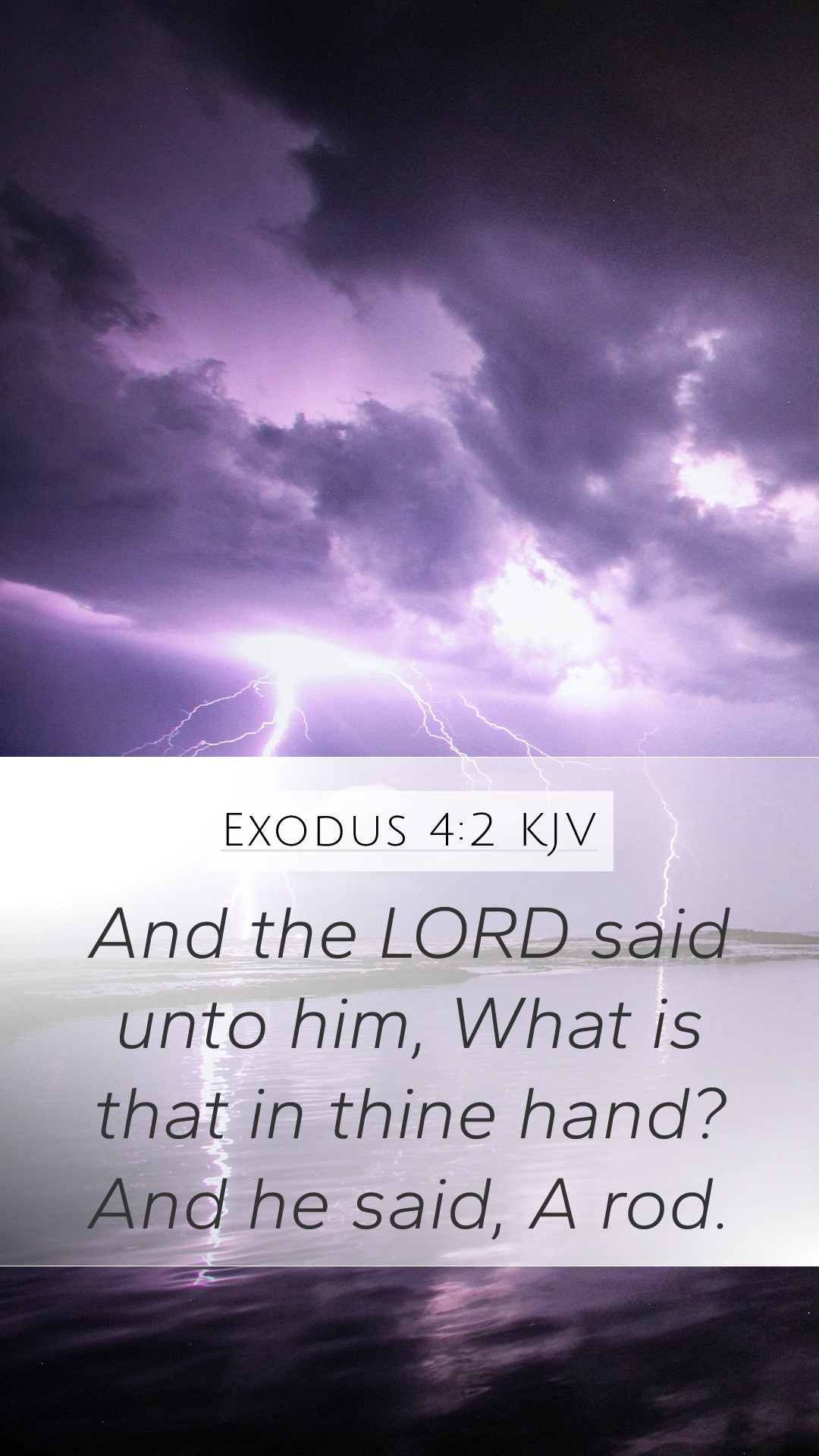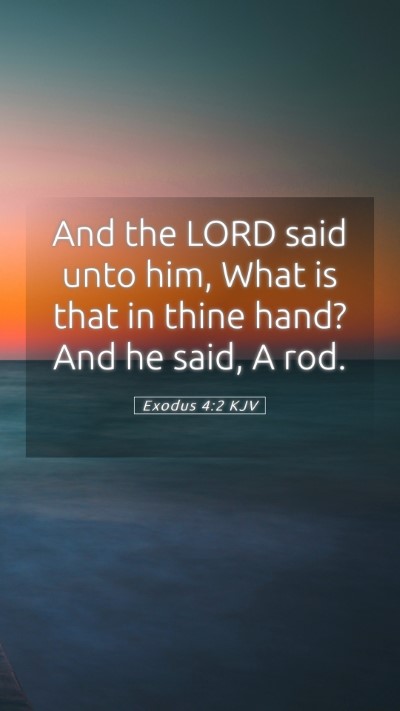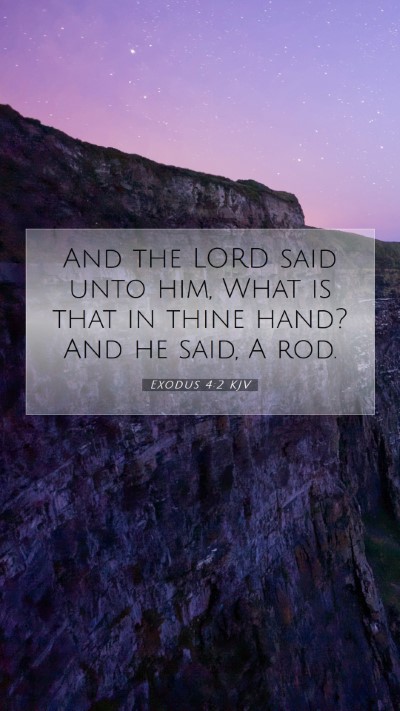Understanding Exodus 4:2
In Exodus 4:2, God asks Moses what he has in his hand, and Moses responds that it is a staff. This interaction not only demonstrates God's ability to use the ordinary for His extraordinary purposes but also serves as a profound lesson in obedience and faith. Below, we explore various insights derived from public domain commentaries by Matthew Henry, Albert Barnes, and Adam Clarke.
Verse Context and Meaning
Throughout the book of Exodus, we see Moses being called to deliver the Israelites from bondage in Egypt. Exodus 4:2 occurs in the broader narrative where Moses expresses doubt about his ability to lead. Here, God uses this moment to show Moses His divine power and providence. The inquiry into the staff in Moses' hand serves both as a practical tool and a symbol of God's authority.
Key Insights from Commentaries
-
Matthew Henry:
Henry emphasizes the significance of the staff, noting that it represents Moses' current resources and familiar tools. He suggests that God uses what we naturally possess to fulfill His divine plans, highlighting the importance of trusting God with our ordinary capabilities. The staff transforms into a sign of God's power when used in faith.
-
Albert Barnes:
Barnes points out that the staff symbolizes authority and leadership. When God asks Moses about it, He is not only asking about the physical object but also inviting Moses to consider the resources at his disposal. Barnes illustrates that God often equips us with what we already have, urging us to recognize and utilize our strengths, however humble they may seem.
-
Adam Clarke:
Clarke delves into the cultural significance of the staff in ancient times, noting that it was not just a shepherd's instrument, but also a sign of honor and leadership. He reflects on how God’s interaction with Moses starts with something simple yet leads to profound consequences, hence encouraging believers to see the potential in God's call, even through seemingly insignificant means.
Application of the Verse
The application of Exodus 4:2 extends beyond the historical context of Moses. This verse invites believers to reflect on their own lives and consider what God may be asking them to use for His purposes. It challenges the notion that one’s resources are inadequate when placed in God’s hands. Here are a few applications:
- Faithfulness in Small Things: Just as Moses was asked to use his staff, we should consider the small talents and resources we have and how they can be employed in service to God.
- Recognizing God’s Empowerment: This verse encourages believers to understand that their strengths are not merely their own but can be empowered by God's Spirit for greater purposes.
- Obedience and Trust: The response to God’s inquiry requires faith and readiness; a reminder that God often asks us to take initial steps based on trust in Him.
Related Bible Cross References
- Exodus 3:12: God assures Moses of His presence as he embarks on the mission to lead the Israelites.
- Exodus 14:16: Moses is commanded to lift his staff over the sea, illustrating God’s power acting through human instruments.
- Isaiah 41:10: This verse reassures believers of God’s help, affirming that His strength is sufficient for their callings.
Conclusion
Exodus 4:2 serves as a reminder that God often works through the familiar and the seemingly mundane to fulfill His divine purposes. Through a staff in Moses’ hand, God illustrates His power and desire to use each individual, regardless of their perceived inadequacies.
By understanding this scripture, we gain insights into how to interpret Bible verses more broadly, utilizing our capabilities in faith, and embracing the call that God places on our lives.


